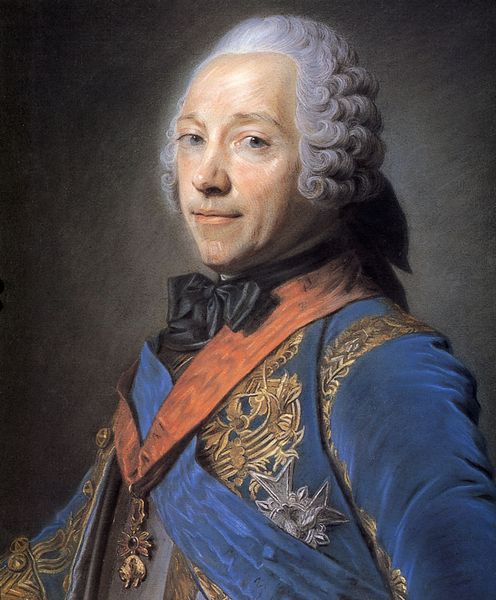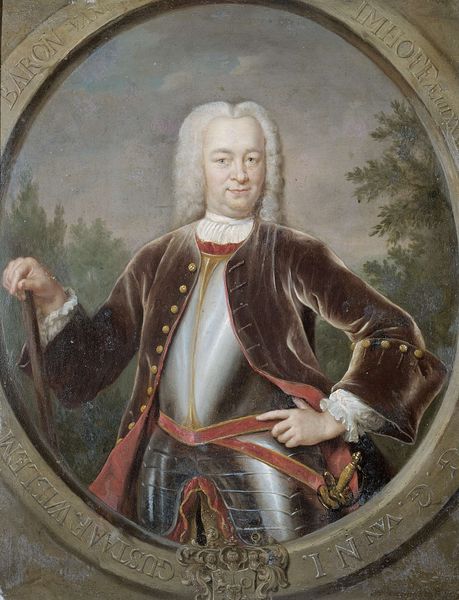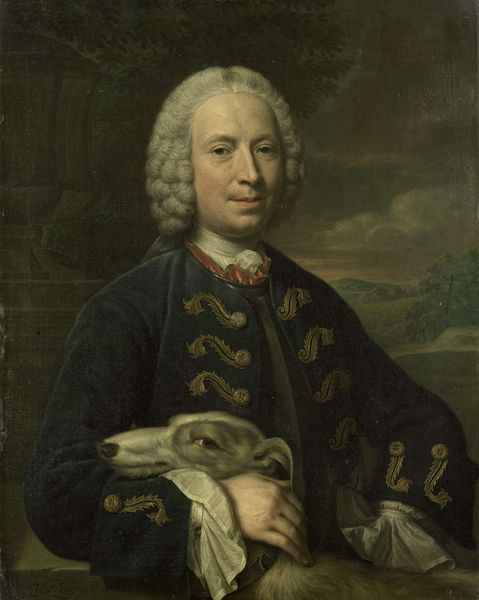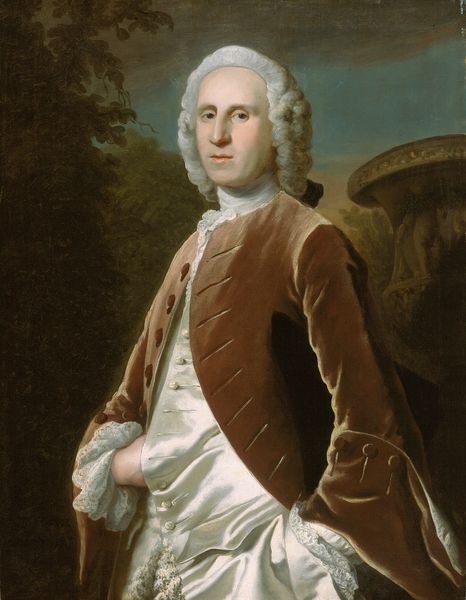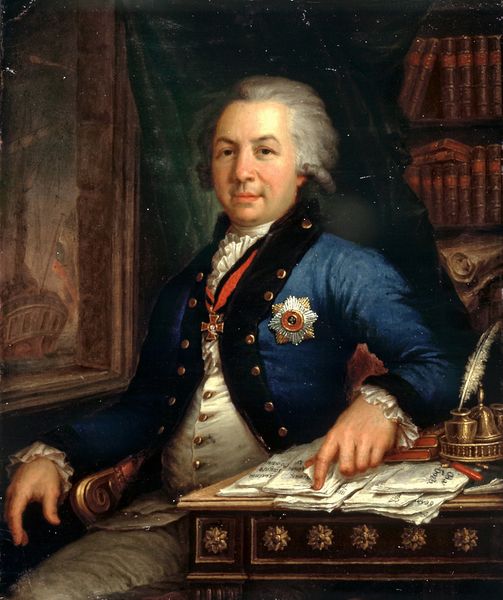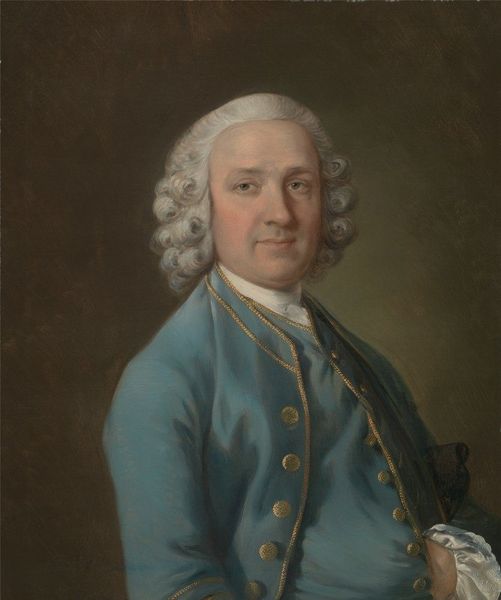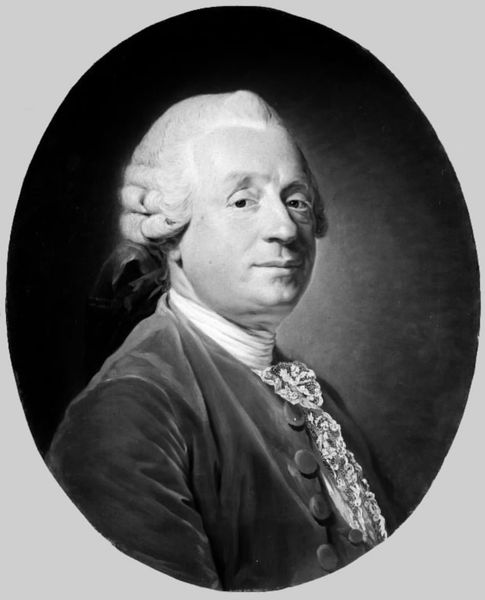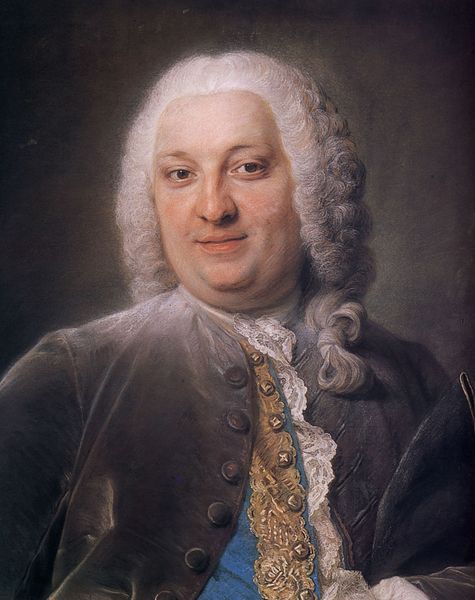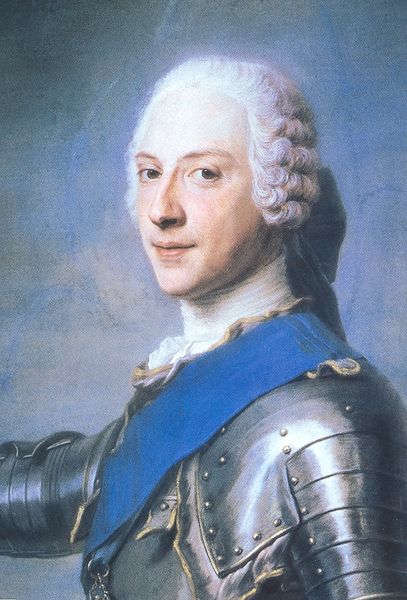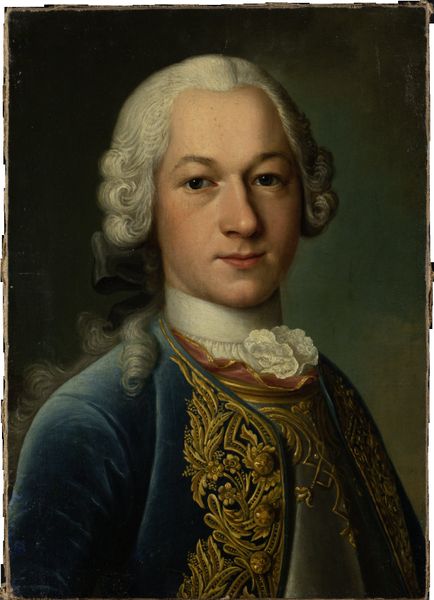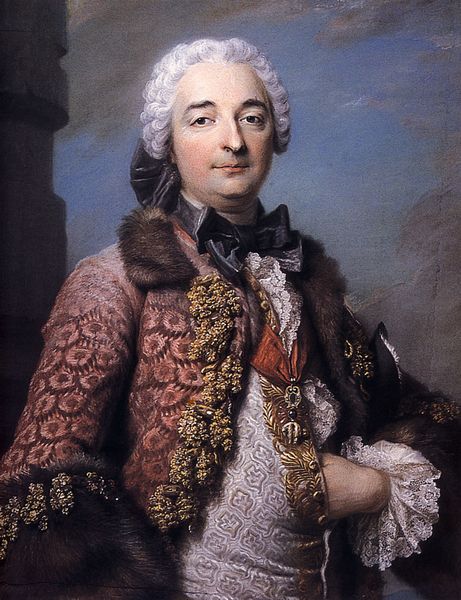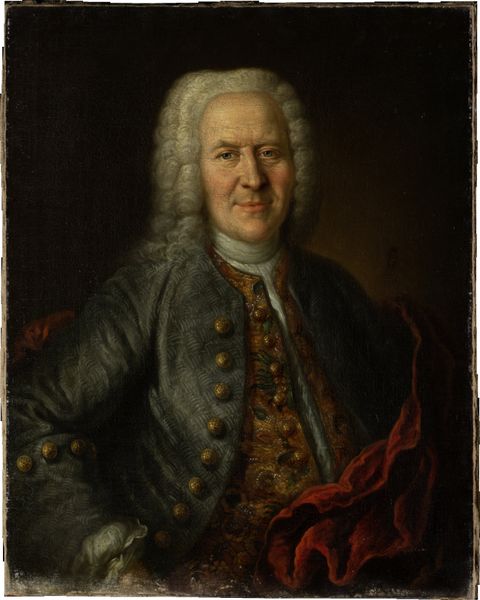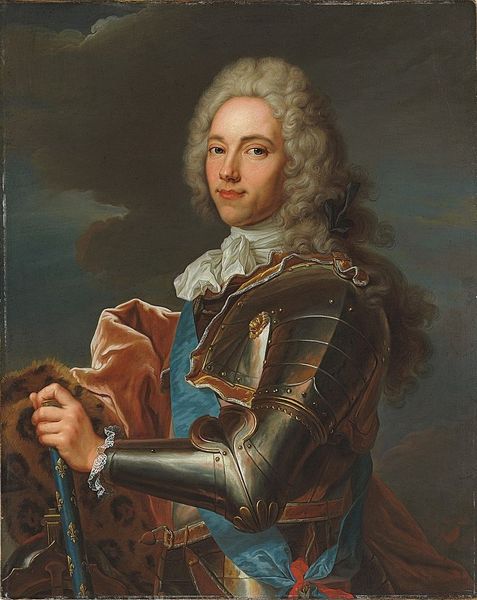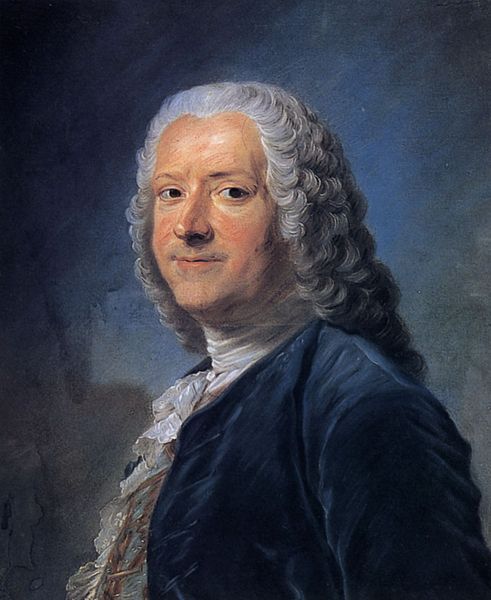
painting, pastel
#
portrait
#
portrait
#
painting
#
pastel
#
history-painting
#
rococo
Copyright: Public domain
This is Maurice Quentin de La Tour’s portrait of Jean Paris de Montmartel. Note how the powdered wig, a symbol of status and intellect, dominates the composition. Wigs weren’t always so. Initially, they were functional—think of ancient Egyptians shaving their heads for hygiene, then donning wigs for sun protection. But somewhere between the Pharaohs and the French aristocracy, the wig transformed. It became a theatrical mask, a tool for crafting identity. Think of Roman emperors using specific hairstyles to convey power and divinity, which evolved into these elaborate 18th-century forms of self-expression. Like the philosopher’s robe, the wig served as a uniform, but it also masked the individual, creating a persona. Notice how the subject gazes out with a slight smile. He is both present and yet distanced. As we contemplate this image, we're not merely looking at a man, but at a symbol. A symbol of transformation, status, and the complex dance between public image and private self.
Comments
No comments
Be the first to comment and join the conversation on the ultimate creative platform.
